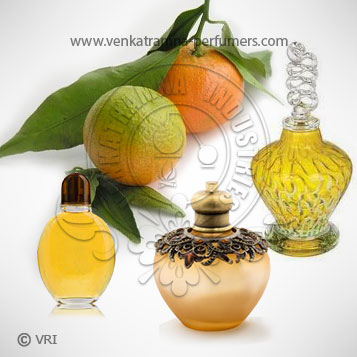
| Botanical Name | Citrus Bergamia |
| Common Name | Bergamot Essential Oil |
| Country of Origin | India |
| Solubility | Citrus |
| Specific Gravity | 0.864 @ 72°F |
| Optical Rotation | 22.7 |
| Refrective Index | 1.44663@ 72°F |
| PlantPart | Fruit Peel |
| Bland With | Most essences, is used as a popular top note in perfumery, Neroli and Lavender. |
| CAS No | 8007-75-8 |
| Flash Point | 136 °F |
| Extraction Method | Cold Pressed |
Bergamot scientific name is Citrus bergamia. Bergamot essential oil is light yellow-green in color. It’s the most delicate of the citrus plants, requiring special climate and soil in order to thrive. The bergamot tree can grow up to four meters high, with star-shaped flowers, and smooth leaves, bearing citrus fruit resembling but in a pear-shaped. The fruit ripens from green to yellow. The name bergamot is derived from the city Bergamo in Lombardy in Lombardy where the oil was first sold. Citrus bergamot is commercially grown in southern Calabria, southern Italy. It is also grown in southern France and in cote d’lviro for the essential oil and in Antalya in southern Turkey for its marmalade. The fruit is not generally grown for juice consumption. However, in Mauritius where it is grown on small-scale basis, it is largely used for juice consumption by the locals.
Bergamot is used in many skin care creams and lotions because of its refreshing nature. It is ideally suited to help calm inflamed skin, and is an ingredient in some creams for eczema and psoriasis. Its chemical makeup has antiseptic properties which help ward off infection and aid recovery. It is also a favourite oil of aromatherapists in treating depression.Bergamot is derived from the city Bergamo in Lombardy, where the oil was first sold. The hybrid is native to Calabria, in southern Italy, where 80% is grown and where it was an indigenous treatment for malaria, but it is now cultivated in the South of France, Algeria, and the Ivory Coast for its essential oil, and in Turkey for the production of marmalade
Color : Light greenish yellow liquid @22C with Citrus,
Aroma : The aroma is basically citrus, yet fruity and sweet with a warm spicy floral quality, and is reminiscent of Neroli and Lavender Oils.
Limonene, nerol, linalyl acetate, linalool, (–)-linalyl acetate (with optical purity >99.9%), (–)-linalool, (+)-limonene and -terpinene.
The oil is used as a constituent for Intestinal Parasites, Nervous Eczema, Stress, Fear, Anxiety, Depression and Tension. It also has cosmetic applications including Skin Infections and in Psoriasis. Its ability to uplift moods or give an energy boost and reliving stress and antibacterial, analgesic, antiseptic, anti-spasmodic, and Soothing effects. Bergamot Calabrian essential oil in pharma May help to ease congestion, coughs and colds, and some infections. Also, can aid digestive system. When diluted in a carrier oil, it may be beneficial for oily skin and acne prone skin, minor skin irritations like eczema and psoriasis, cold sores, as well as minor wounds like cuts, scratches and abrasions. Essence of Bergamot Calabrian essential oil Refreshing and uplifting it may assist in relieving depression, nervous tension, stress and anxiety, and insomnia. Used for concentration, motivation, general well-being and happiness.